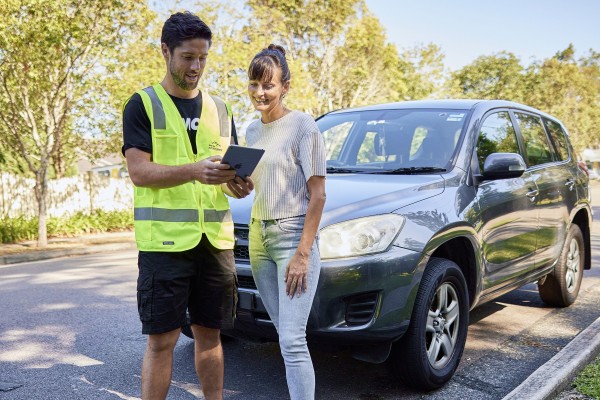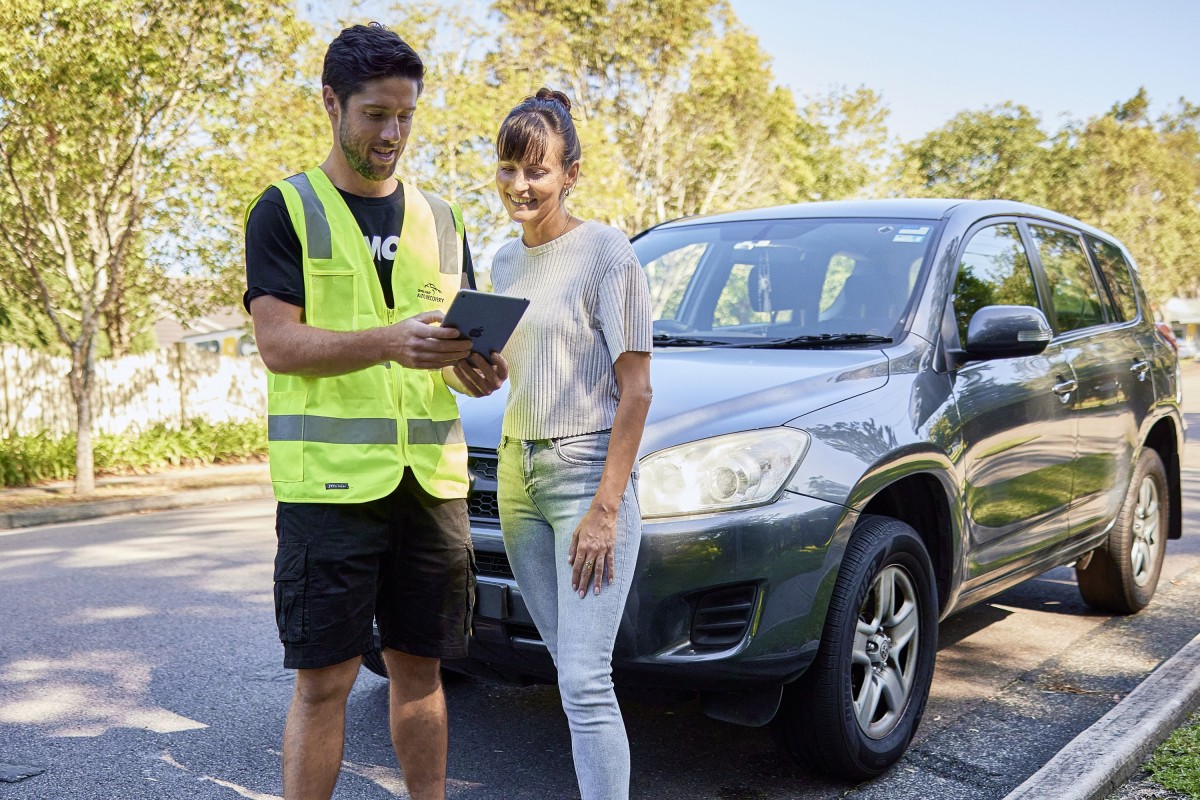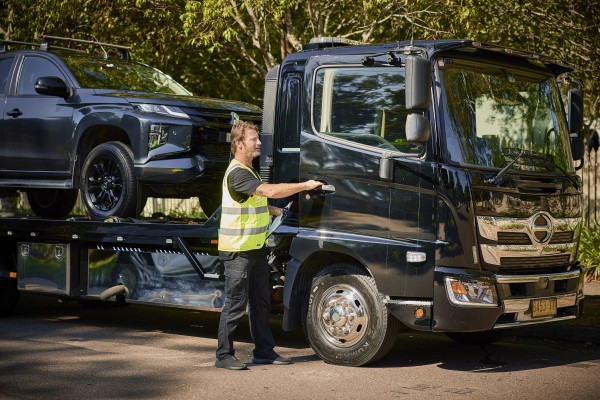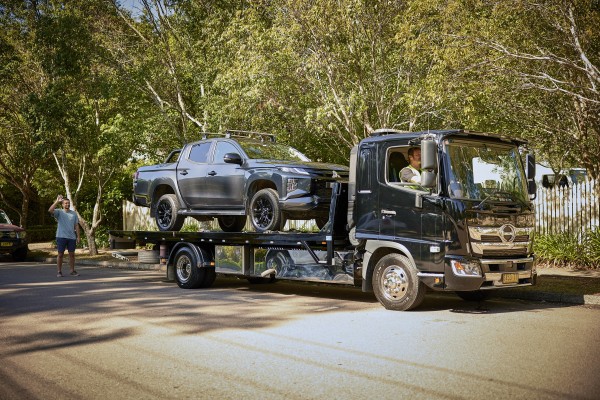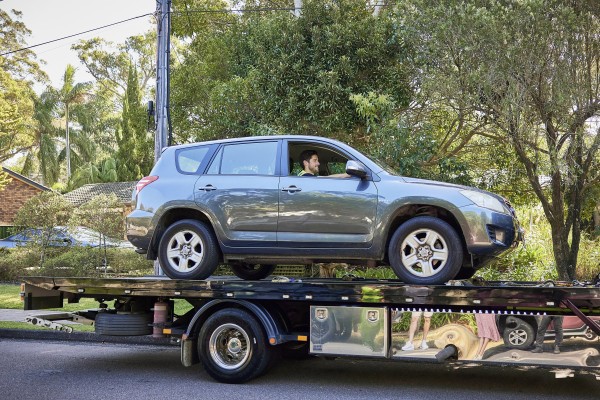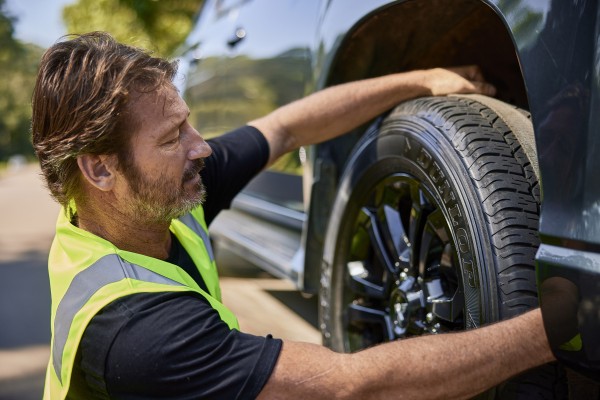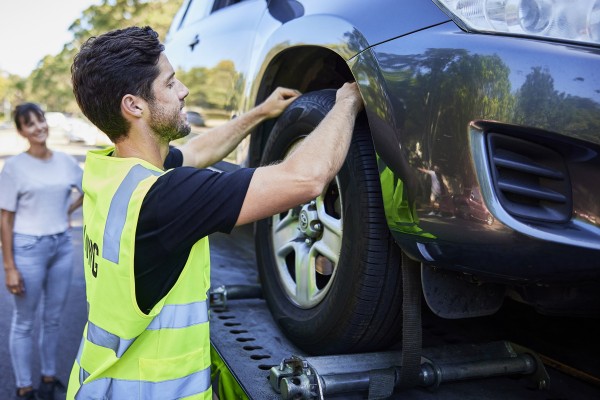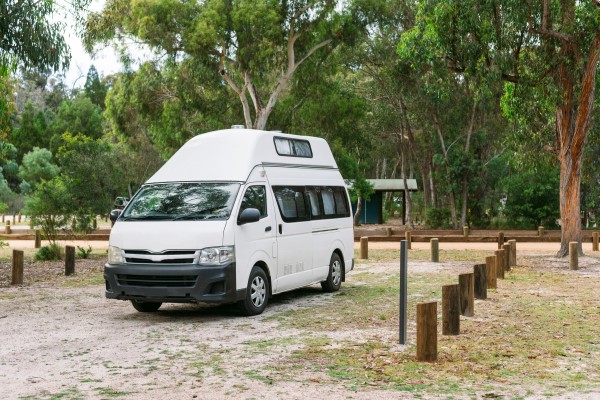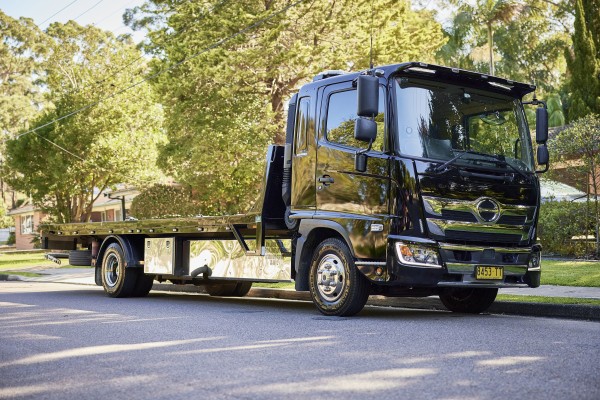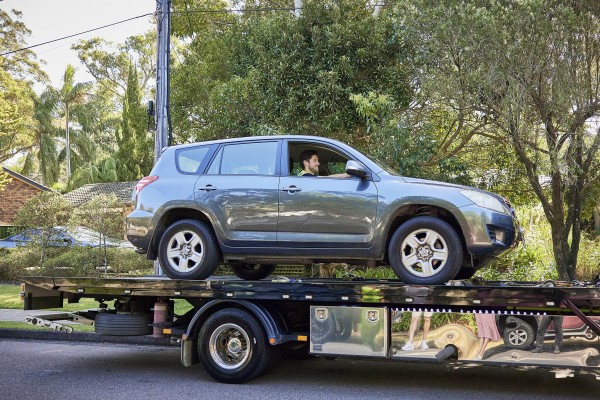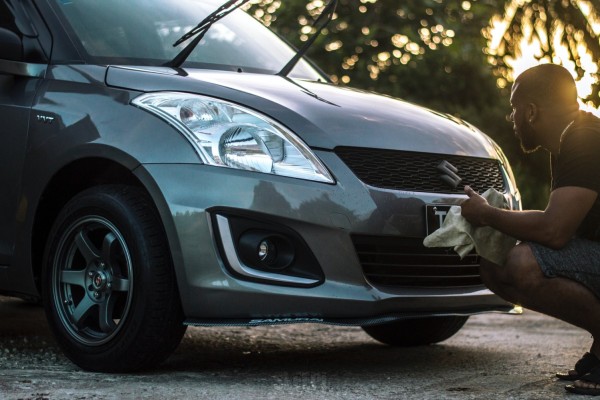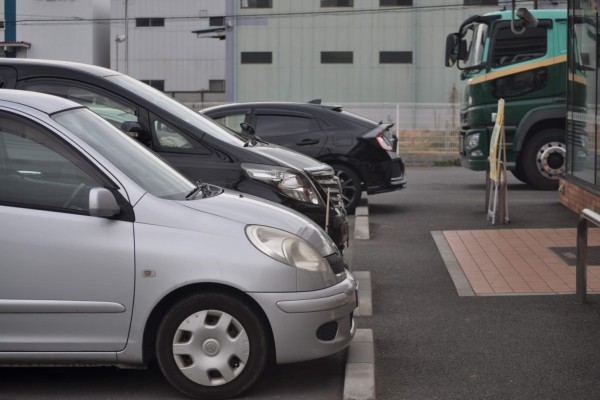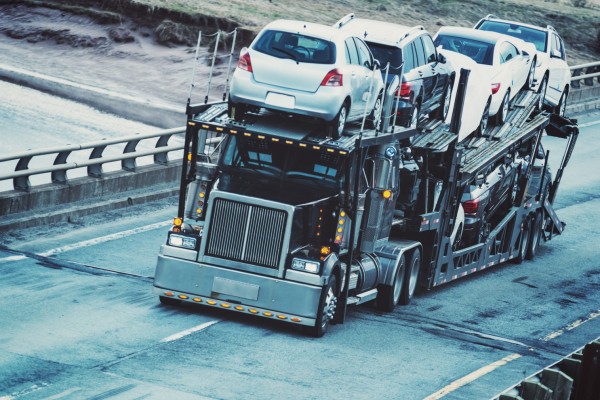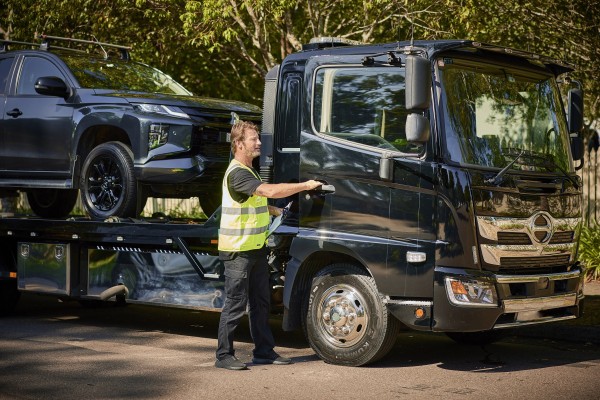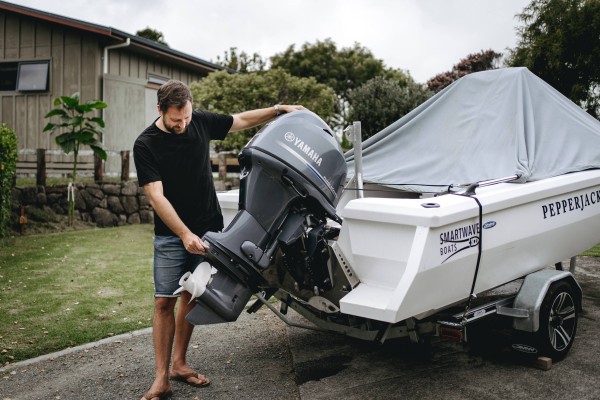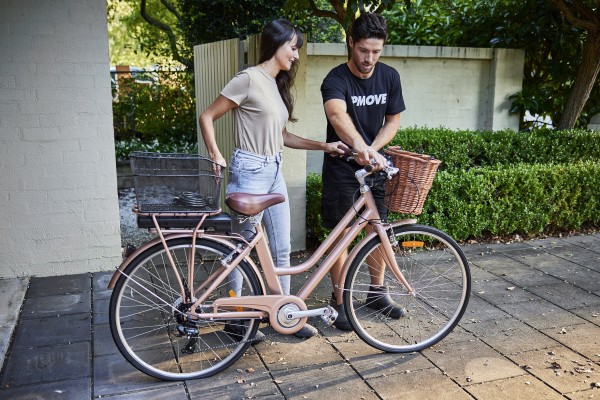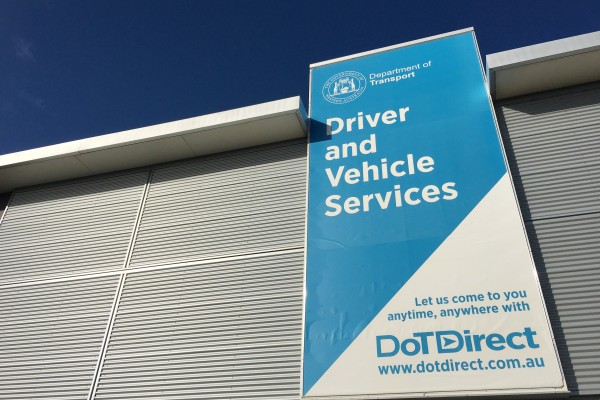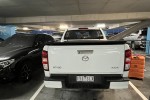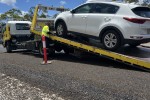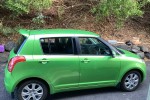Quick Guide to Interstate Caravan Transport
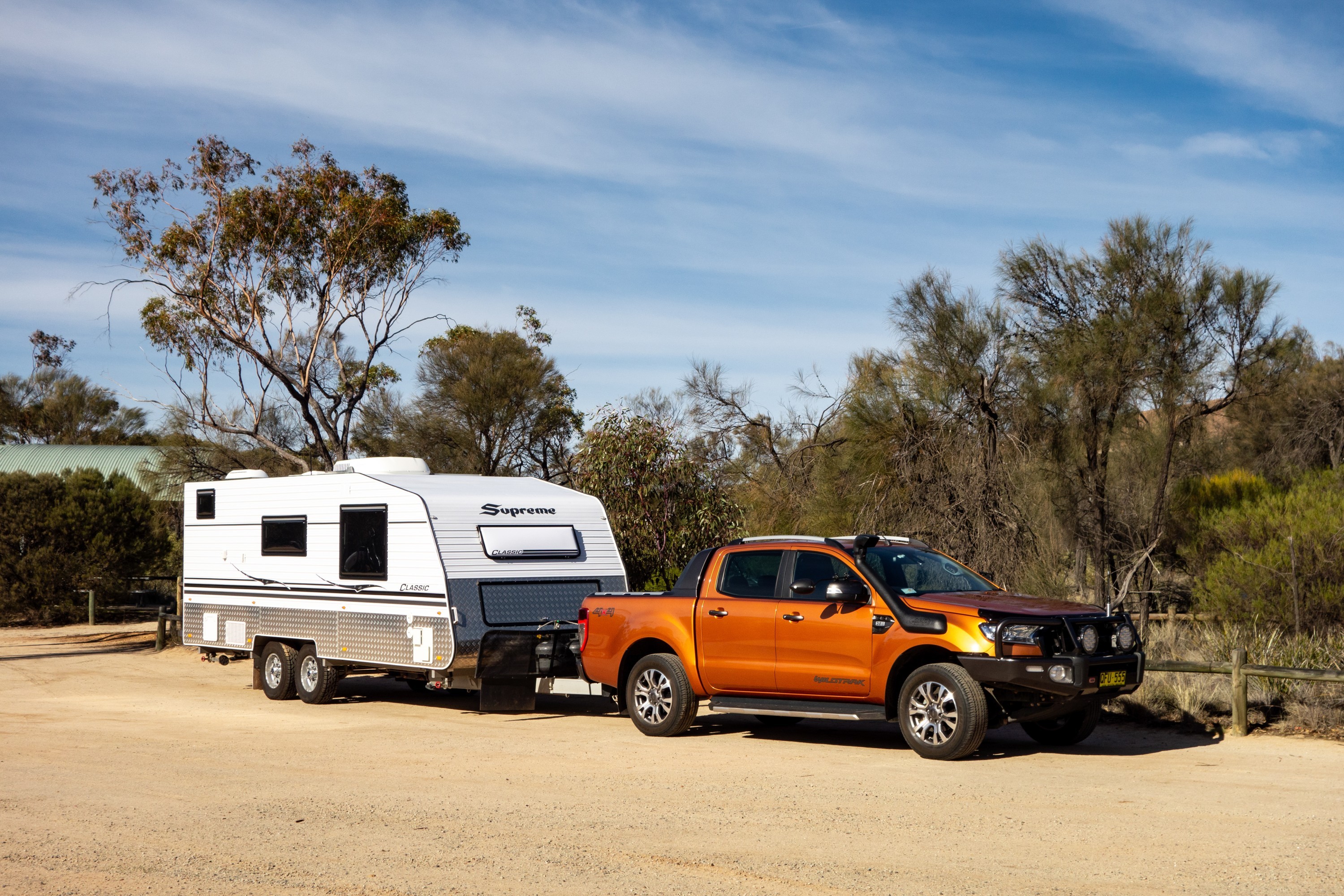
Need to get a caravan from A to B? You're in the right place.
This guide covers everything from how to safely move a caravan over a long distance to if you're required to register it once it arrives in a new state.
Here's a breakdown of what we're covering:
Can you pay someone to move your caravan?
In short, yes. If you need to move a caravan interstate in Australia, it will likely be over a vast distance. Outsourcing this move will save you heaps of time (often days), reduce the wear on the caravan, and even be the cheaper option.
To get the best price for caravan or car transport you can compare multiple quotes from experts via Upmove.
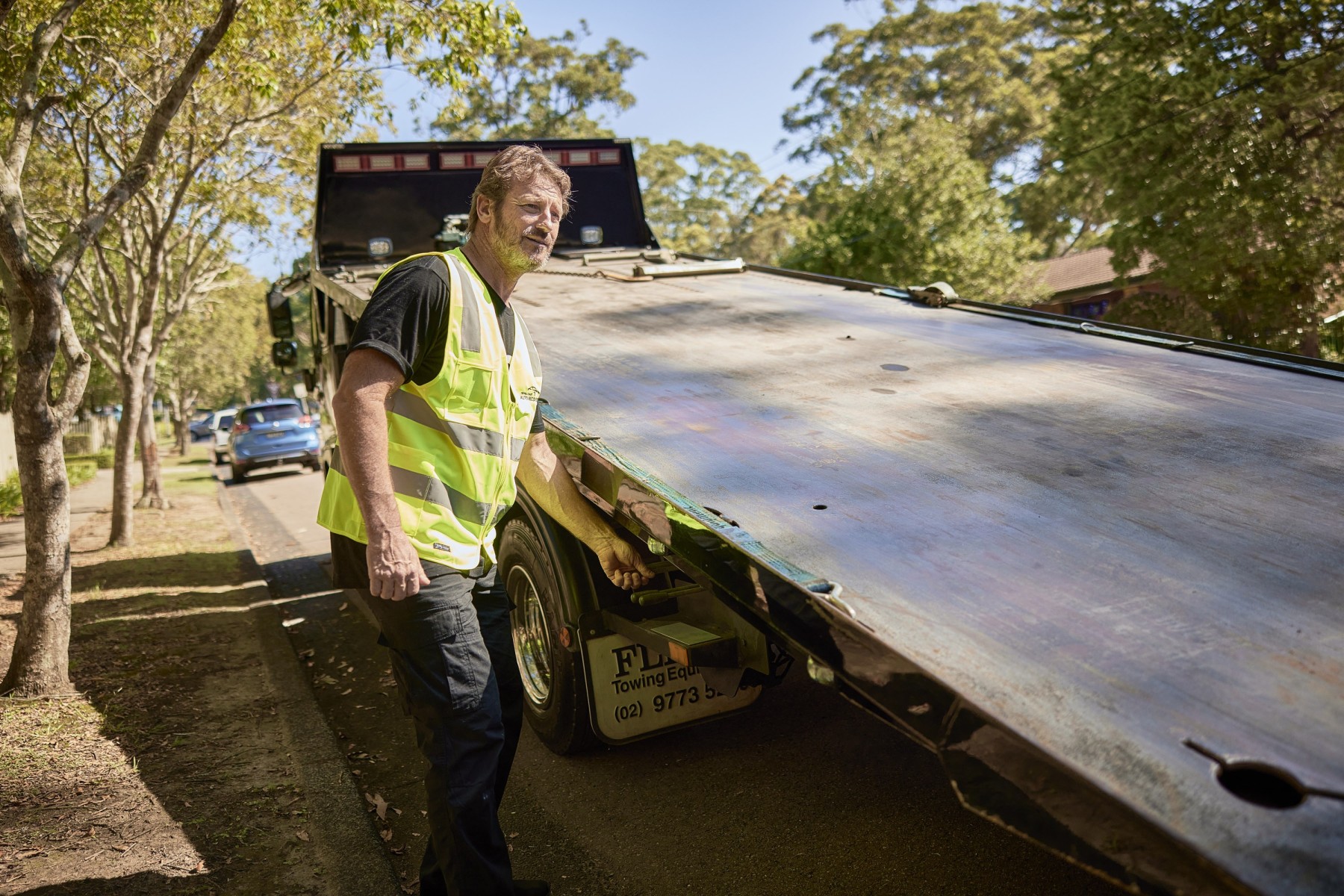
How much does it cost to transport a caravan interstate?
Transporting a caravan interstate costs between $920 to $3,240 depending on distance, size and urgency. The duration of the move typically takes between 6 and 9 working days.
If you have any special requirements or a particular date, that would also change the cost. Some carriers estimate between 40-60 cents per kilometre for interstate routes depending on metro or regional destinations.
So it’s worth doing your research and getting multiple quotes to find the right transport company for you and your needs. At Upmove you can compare quotes easily, and make sure you’re happy with the service you’re getting.
How much does it cost to tow caravan?
If you’re towing a touring caravan yourself, there are a few costs to consider:
- Higher tolls to pay due to the caravan itself
- Petrol
- Any towing or hitching equipment that needs refreshing or updating
- Safety flags and “do not overtake” signs (if greater than 7.5m in length)
- Other equipment if required, like extended mirrors
And if you’re only just getting into caravanning, you’ll want to consider the initial costs around getting a towbar and hitch and then getting them installed, which will probably end up somewhere around $1,000.
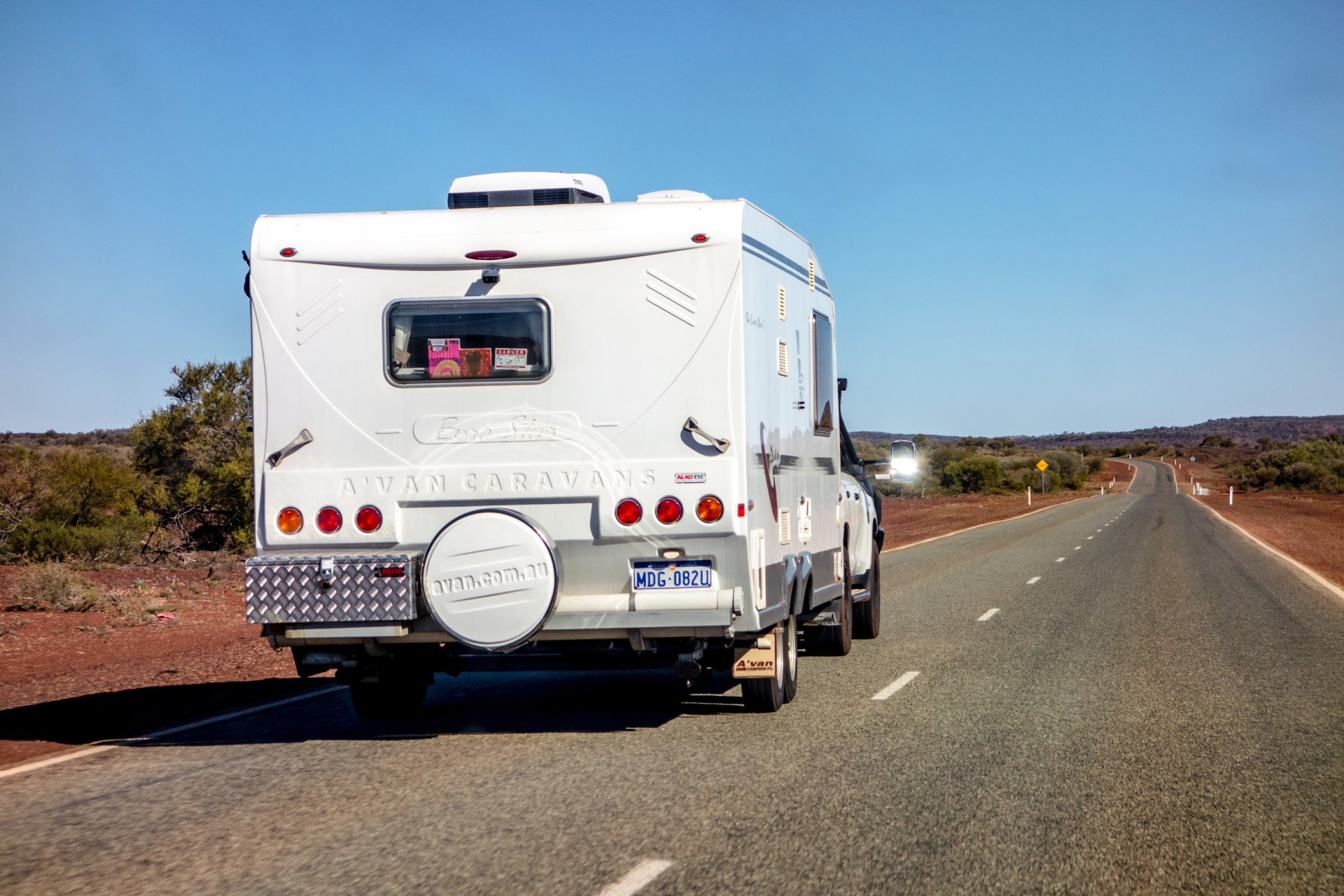
How are caravans transported?
Loading and fastening a static caravan onto a low-loader truck or flatbed truck, safely transporting it between places, and carefully discharging it to its new lot are typical steps in the moving process for a caravan.
There’s a lot to consider, and most static caravan transport specialists will want you to conduct a risk assessment and tell them of any potential issues.
This includes the following:
- Determining whether your caravan needs unique escort vehicles or wide flags
- Obtaining a police permission from each policing area through which the caravan will pass, if required
- Analysing the roads leading up to both your present and destination sites ensuring there are no obstructions leading up to the new lot
- Confirming the process complies with the rules and regulations of your park
Before you transport a caravan, you’ll also want to record and share with the moving company the state of the caravan itself - any dings or condition notes, just like you would with a rental car.
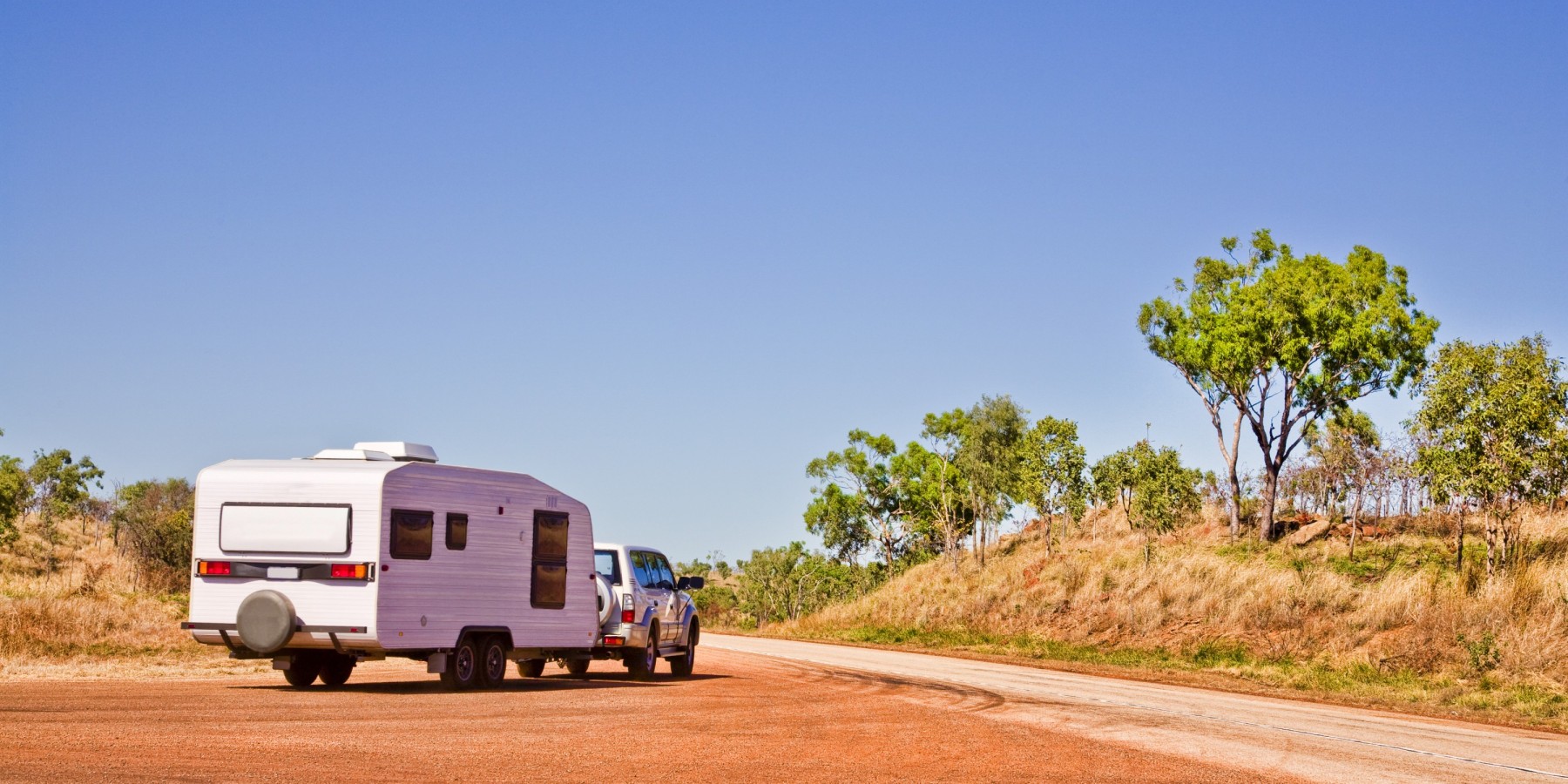
If you have a touring caravan and a hitch, as well as a full licence and a car that can handle the weight, it should just get towed behind a car if you’re doing it yourself. Of course when doing so you’ll want to meet safety standards, like we mention above, and other considerations like:
Safe packing: heaviest items are packed low and centred over the caravan’s wheel axles and the lightest items are packed up high and distributed across the vehicle.
How everyone is travelling: it’s illegal in NSW for anyone to be riding in the caravan while it’s being transported
How much everything weighs: Your Gross Vehicle Mass also includes everything that’s packed within it, so you’ll want to find a public weighbridge or weighing station to understand how much it weighs
How long can you live on a caravan site?
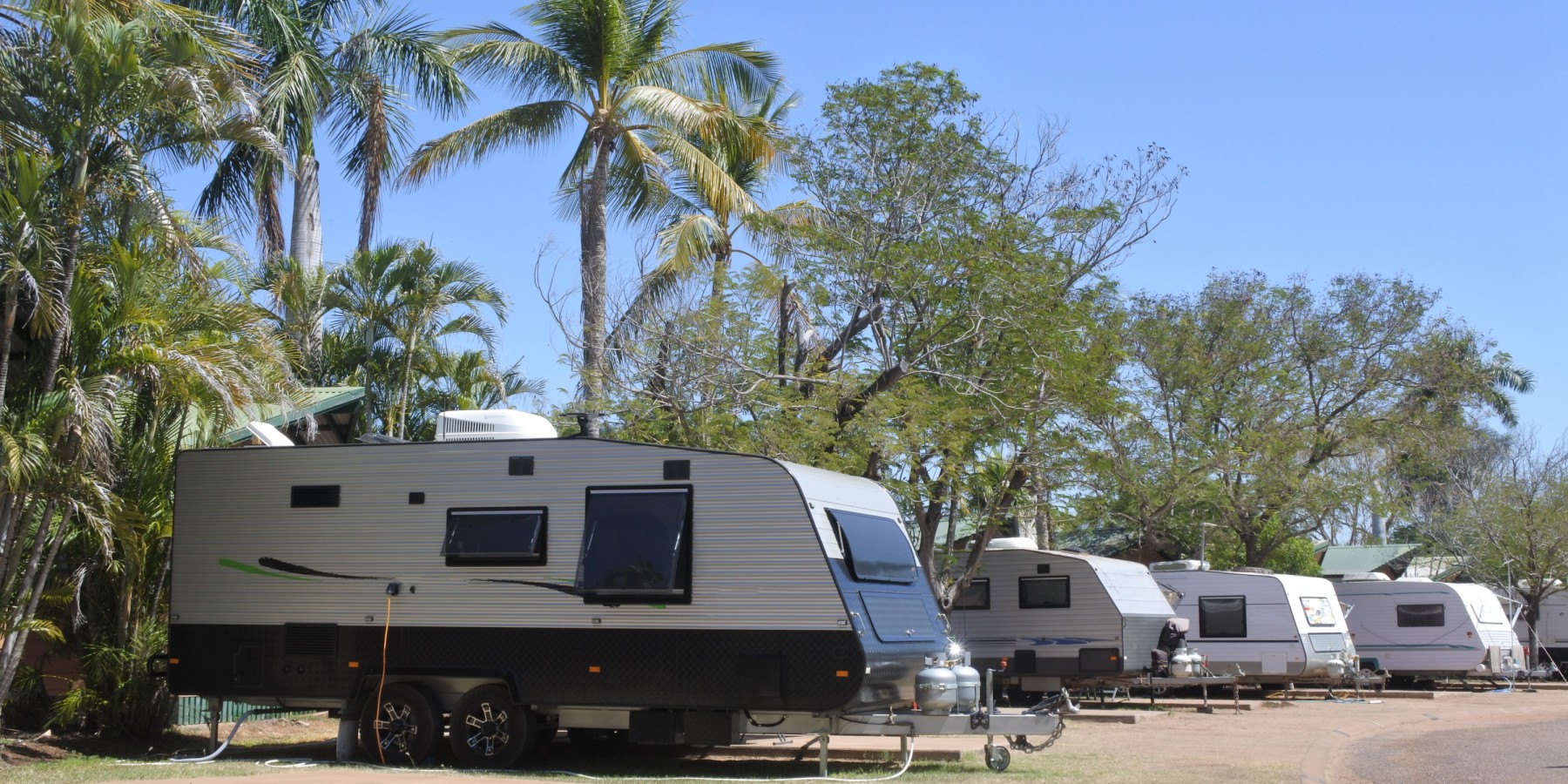
How long you can live on a caravan site depends on a number of factors, including:
- State legislation
- The rules and regulation of the campsite or caravan park
- The type of property
In Australia, you can park on private property for up to 30 days without a licence, and if you’re able to show a licence, some states, like Tasmania, will allow you to live in a caravan indefinitely on that private property if you pay annual dues and meet requirements for sewage and waste disposal.
A lot of caravan parks won’t allow you to physically stay at the property for more than 180 days a year, because at that point it’s considered residential, which the caravan park may not be zoned for.
If you’re looking to live in a static caravan year-round, you’ll want to find a park that has been zoned for residential use and allows long-term tenants. Even then, in states like NSW, the longest you can stay in a caravan park is 5 years.
As always if you aren’t sure about the regulations in your area, it’s best to contact the local council, particularly if you’re hoping to stay for a longer period of time.
Can you leave a caravan on a site?
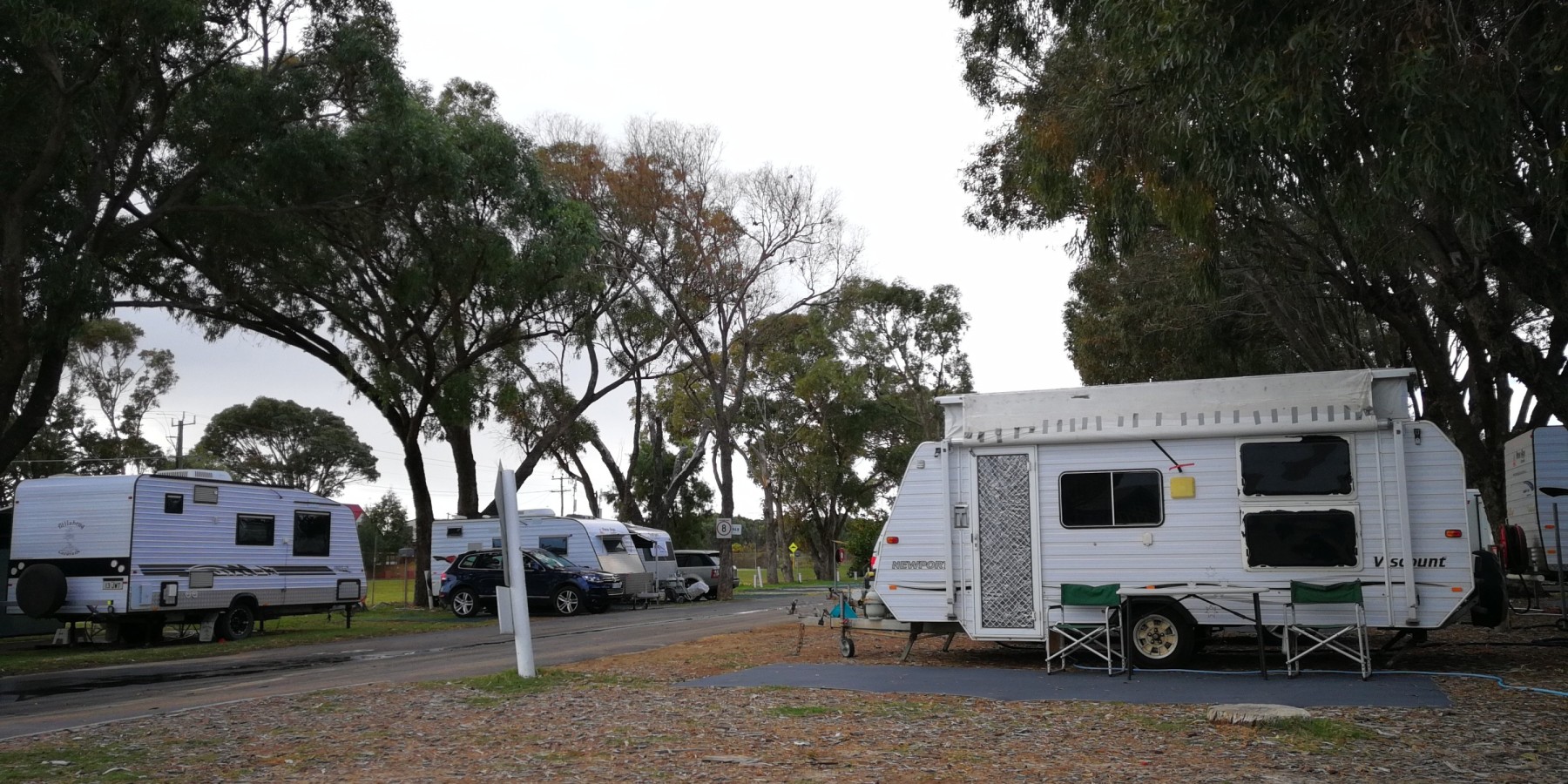
Yes, oftentimes you can leave an unoccupied caravan on-site. How long you can leave it there depends on the terms of your agreement with the park; whether you’re on a long- or short-term contract.
It also depends on your insurance, some insurances will stipulate the caravan needs to be occupied for the cover to be valid, or that it can’t be unoccupied for longer than a specific period of time. You should also inform the park manager that you’ll be leaving, as they may also have requirements.
If you are leaving your caravan on-site for any length of time, along with all the standard pre-holiday leaving checks you’d do for a static house, you’d also probably want to:
- Remove all perishable food
- Make sure the toilets are empty and clean and do the same to the grey water tank
- Check and maintain your wheel bearings a tires
- Turn off the gas
- Empty the water tanks
- Lock the hitch and wheels
Can anyone tow a caravan in Australia?
If you have a full licence, and the caravan and tow-vehicle don’t exceed the mass limits that involve an endorsed or heavy vehicle licence, you’re fine to tow a caravan. Different states have different regulations around speed limits and whether or not you can tow on your P’s or L’s, but in Australia as a whole you shouldn’t have to have a special qualification to tow a caravan yourself if you’d like.
For reference, a car licence in NSW allows you to tow a vehicle with a 4.5 tonne Gross Vehicle Mass (GVM). A standard 4-6 berth caravan shouldn’t typically weigh more than 2 tonnes.
What speed can you tow a caravan at?
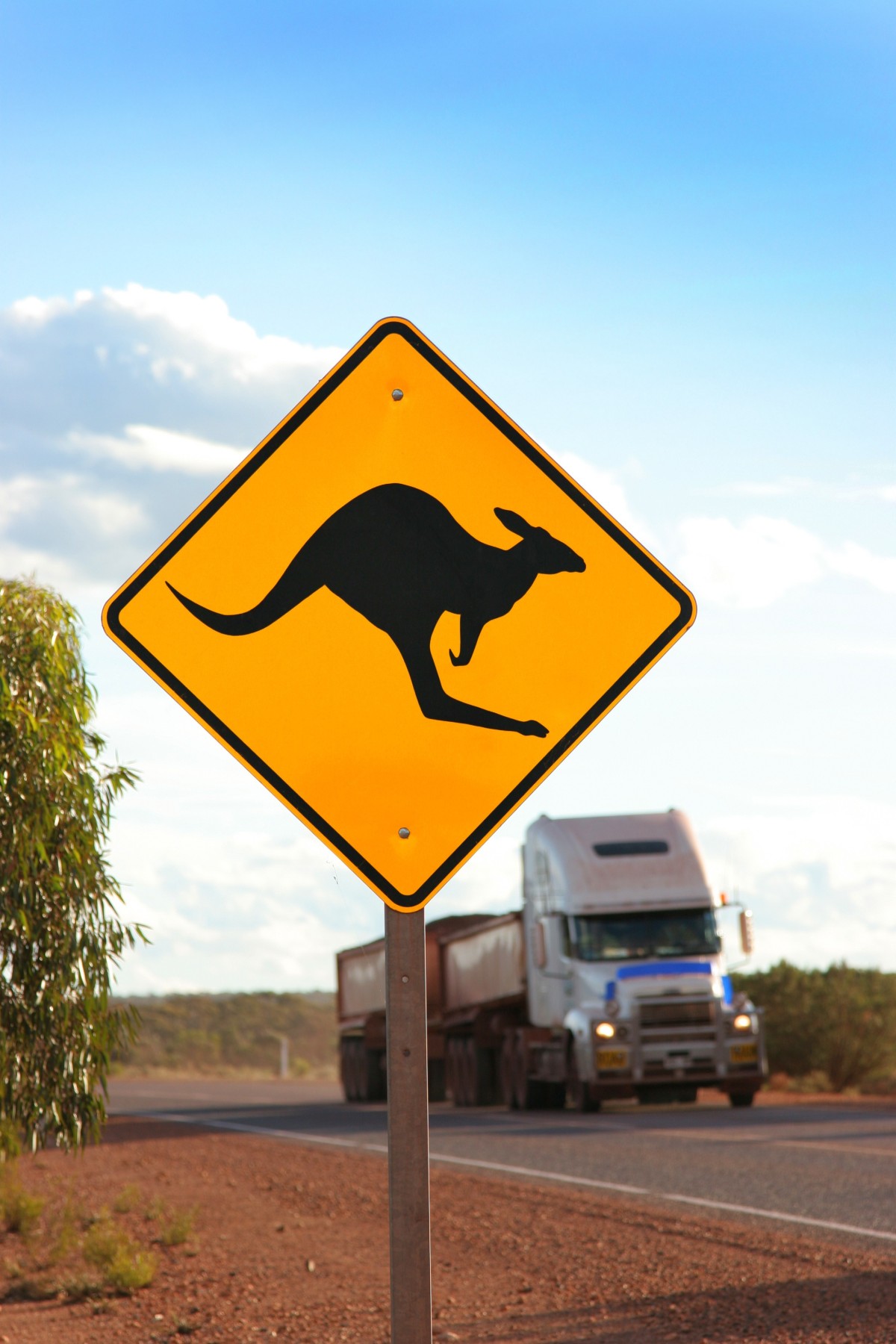 Most states in Australia have no specific towing speed, and rather require you to follow the posted road speeds. WA has a maximum towing speed of 100km/h, and NSW is 110.
Most states in Australia have no specific towing speed, and rather require you to follow the posted road speeds. WA has a maximum towing speed of 100km/h, and NSW is 110.
It’s also important to note that your car manufacturer may recommend towing speed limits for your car, like a Subaru or a Ford, that are lower than the state maximum towing speed. If you’re considering towing a touring caravan, then, it’s also good to check your car manual to make sure there aren’t any other requirements you should be keeping track of and considering when either buying your caravan or figuring out how you’ll tow it.
Is buying a touring caravan a good investment?
If you’re already considering buying a caravan, it’s probably a good investment, because you’re interested in the lifestyle and the freedom it can give you.
As with any purchase of a home, you should also consider secondary costs, like insurance and maintenance, when deciding whether or not owning a touring caravan is right for you. With touring caravans, it’s also worth including costs like site fees and petrol in those calculations as well, particularly if you’re planning on being a nomad and becoming a full-time caravan resident. If after all those calculations, it’s still an investment that makes sense to you, then there’s no reason not to.
The lucky country is pretty open and welcoming of the nomadic caravanning lifestyle, and if it’s one you choose we know sometimes it can be nice to take a break. And that break may just be having someone else move your caravan for you, and enjoying the road ahead of you without the stress of towing your caravan behind.
What do our customers say?

